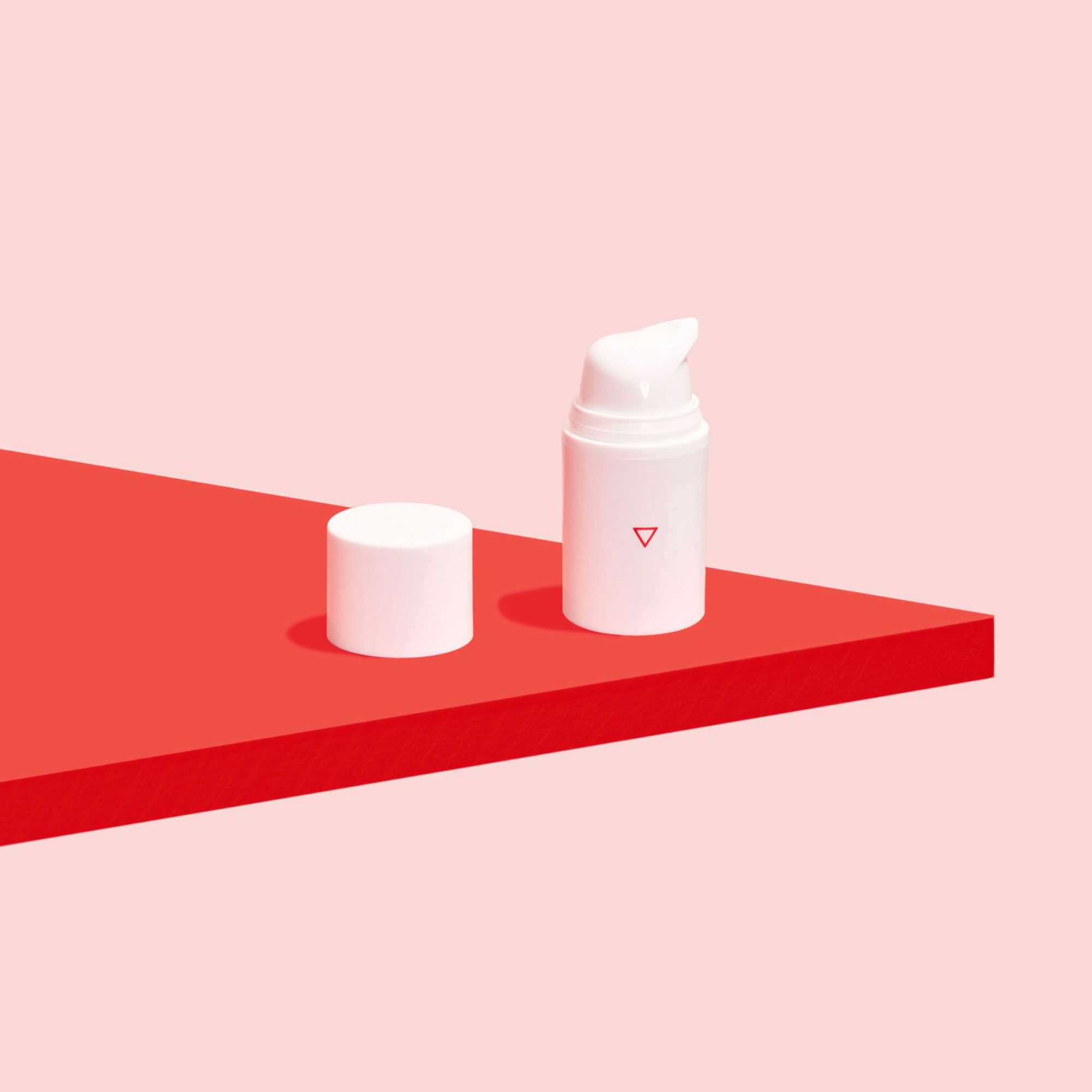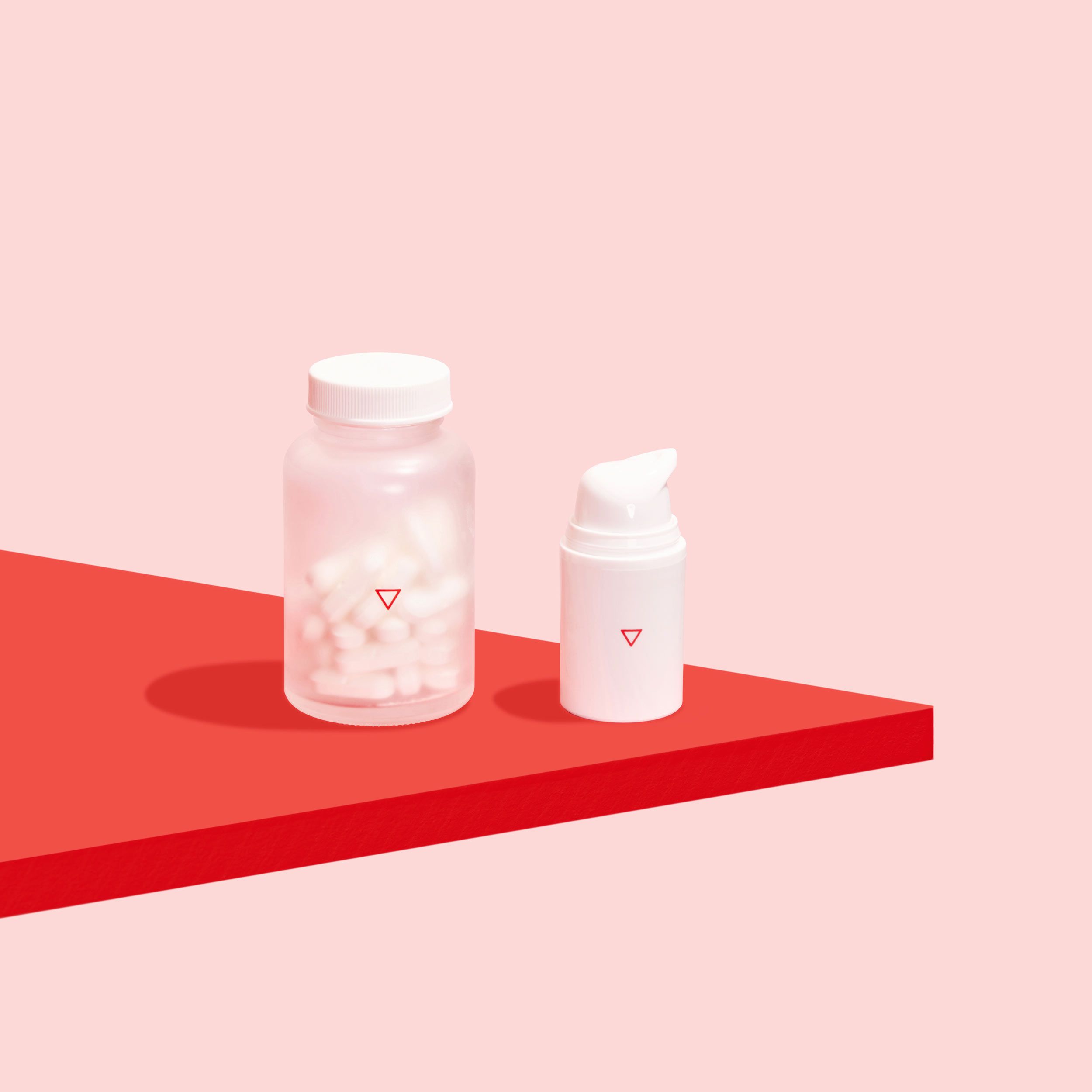
Let's Talk Herpes Treatments
Published on August 5, 2020
Updated on April 29, 2025
Written by Kathleen Morrison
Medically Reviewed by Andrea Sleeth WHNP-BC, MSCP
First things first: if you've just spotted a sore or felt something off down there, take a deep breath. Herpes is super common (like, really common), and having it doesn’t say a thing about your worth, your sex life, or your health overall. Pinky promise.
What matters most is how you care for your body moving forward. Learning what works for you—prescription herpes treatments, lifestyle adjustments, and taking general precautions—can help you feel more in control and less stressed when outbreaks pop up.
There are lots of ways to feel better on your own terms. You’ve got options, and you’re not alone.
Wisp treatment options are available only after consultation with a licensed medical professional. You should consult with your healthcare provider before starting a new supplement or treatment regimen. Individual results may vary.
Understanding the Herpes Simplex Virus
So, basically, the Herpes Simplex Virus (HSV) is passed through skin-to-skin contact or fluid from a sore, and it tends to show up around the mouth or genitals.
Once it’s in the body, it chills in your nerve cells until something like stress, sickness, or exhaustion invites it to make an appearance.
Yes, it sticks around for life—but that doesn’t mean you’re powerless. Noticing your herpes triggers, listening to your body, and responding early can help keep things calm. Think of it like getting a heads-up before a storm—you might feel tingling, itching, or general weirdness before an outbreak, which gives you time to rest, hydrate, and (if you use it) start your go-to treatment.
Types of Herpes
There are two main types of herpes, and while they’re similar, knowing which one you have can help guide your care plan.
- HSV-1 usually causes oral herpes (cold sores), but it can also show up in the genital area.
- HSV-2 is typically associated with genital herpes, though it can also appear orally.
Both oral and genital HSV are spread through direct contact—kissing, oral sex, or even sharing utensils or lip balm.
Doctors may make an educated guess on the herpes simplex virus type based on the location of a sore, but lab tests are the most reliable way to know for sure. When you know your type, it’s easier to track your symptoms, notice patterns, and make confident choices about treatment and intimacy.
Treatments for Managing Herpes
Herpes, unfortunately, can’t be cured, but it can be managed. The most common medications for herpes are (thank goodness) easy to use, super effective, and designed to fit right into your day-to-day life.
They typically work by hitting pause on the herpes virus when it’s trying to stir things up, which can make your outbreaks shorter, less disruptive, and way more manageable. You can start using prescription treatment at the first hint of a tingle, itch, or bump, and often feel a difference pretty quickly.
Some people like the routine of a daily dose that keeps things steady and low-key, while others only reach for meds when a flare-up is about to pop off. Either way, you’re in charge.
Antiviral medications
Let’s talk about the usual suspects for prescription antivirals for genital herpes and prescription medicine for cold sores: acyclovir, valacyclovir, and famciclovir.
These antiviral therapy meds are well-known for helping soothe discomfort and speeding up the healing process when it comes to both oral and genital herpes. Having them ready to go means you can start treatment as soon as you feel that first twinge, which takes a lot of the guesswork (and stress) out of the equation.
Sticking to the schedule is important, though. Skipping doses can make the meds less effective, so setting a reminder can be a game-changer.
As for side effects? Most people tolerate these meds really well. If anything pops up—like a headache, a little stomach weirdness, or some instability in your mood—it’s usually manageable and short-lived. However, take a look at your specific prescription to get a clear idea of potential side effects and chat to your healthcare provider if things feel too out of whack.
And if your body doesn’t vibe with one medication, a provider can help find one that does. Everyone’s body is different, and that’s totally normal.
Episodic and suppressive therapy
There are two main ways to approach treatment, and neither is better than the other—it just depends on your lifestyle and what feels right for you.
- Episodic therapy: You take medication only when an outbreak is starting. It’s ideal if you don’t get flare-ups often or if you usually notice them early. Think of it as your “in case of emergency” plan.
- Chronic suppressive therapy: This means taking medication every day to keep things more low-key long-term. It’s great if outbreaks happen often or you just want that steady sense of control, like carrying that umbrella every day, just in case.
Whichever path you choose, it’s about finding what makes you feel most comfortable and confident. Tracking when outbreaks happen, how your body responds, and how the meds are working can help you fine-tune your plan so it works even better for you..
Natural Ways to Support Your Body
For some people, natural methods can help make living with HSV a bit easier. These approaches aim to support your body’s natural defenses and create a healthy, happy environment in your bod.
Think of them as helpful additions, not as replacements for medical advice if outbreaks are severe or frequent.
Food habits
Certain foods may help create a balanced environment in your body to support your immune system during HSV flare-ups:
- Foods high in lysine (such as dairy, fish, and fruits) may help maintain a healthier internal environment.
- Cutting down on arginine-rich foods (like chocolate and peanuts) could help make flare-ups less frequent for some.
- Staying hydrated is key! Water helps your body with its natural cleansing processes—think of it like washing dishes in a busy kitchen.
A well-rounded diet with plenty of fresh fruits, vegetables, and lean proteins can:
- Support a strong immune system
- Keep energy levels stable
- Help your body stay resilient against various stressors
If you’re feeling tired often or catching colds more frequently, it might be time to check your nutrient levels. But remember, before making big changes, chat with your healthcare provider to make sure your new habits are a good fit for you.
Herbal helpers
While they’re absolutely not a replacement for prescription treatment, some herbal remedies and supplements may provide a little extra gentle support for your body. Consider adding these to your self-care routine:
- Zinc, vitamin C, and garlic capsules: Often used to help boost immune function.
- Lemon balm (Melissa officinalis): Can be applied topically to soothe irritated skin.
- Diluted tea tree oil: May provide relief for itching or discomfort, but be sure to patch test first to check for skin sensitivity.
While these remedies can be comforting, remember they shouldn’t replace standard prescription treatments. These are like extra layers of self-care—helpful, but not miracle workers!
Lifestyle tweaks
Stress can be a big trigger for HSV flare-ups, so finding ways to relax is always a good idea. Here are some simple ways to integrate relaxation into your day:
Start with some mindful activities like a daily walk or a few minutes of slow, meditative breathing. These small practices can go a long way in easing stress and helping you feel more balanced. If journaling helps you process emotions, it’s a great way to release any built-up tension, too.
Your sleep routine is also crucial. Cutting back on screen time before bed can improve the quality of your sleep, and sticking to a consistent sleep schedule helps your body recharge.
Lastly, gentle physical activity, like yoga or light cycling, can help you boost circulation and elevate your mood without putting unnecessary stress on your body.
How to Keep Herpes from Spreading
When it comes to HSV (and any other sexually transmitted infection), it’s all about being open and taking a few simple steps to keep things as comfortable as possible for everyone.
Honest chats and safe practices
Here’s the thing—talking it out with your partner is key. Let them know how often you have outbreaks, what symptoms to look out for, and what they can do if they notice something off. Remember, it’s way better to be upfront and clear than to let things go unspoken.
Plus, washing your hands after touching a sore or putting on ointment is a smart move to keep everything safe. If you’re using lip balm or makeup, it’s best to keep those personal while you’re dealing with cold sores—just another way to avoid spreading the virus.
You can encourage your partner to get tested, too! It’s all about taking the guesswork out of the situation. No one wants to feel uncertain about their health, so the more you can both know, the better. Having these kinds of conversations? It’s just a sign of respect. You’re not weak for sharing your HSV status—you’re being upfront and caring.
Condoms and barriers
Now, let’s talk about condoms and dental dams. They’re awesome for creating a barrier between you and any skin that might be shedding the virus. Sure, they don’t cover everything (so outbreaks can still happen), but they’re definitely a helpful tool.
Using them every single time, even when you don’t have visible sores, is a good way to keep things safer. Some folks also choose to avoid sexual contact if they notice a sore, which can help lower the chances of spreading herpes simplex infections.
Limiting the number of sexual partners you have is another way to help lower the overall risk. If you’re really keen on staying extra cautious, getting regular testing when you're engaging in sexual activity is a smart idea, too. It’s all about combining safe practices, open communication, and checkups to keep things feeling relaxed and safe.
Living your best life (even with Herpes)
Herpes doesn’t have to stop you from living a full, rewarding life. Once you understand your triggers and develop a self-care routine, outbreaks can become way easier to manage. Over time, you'll learn to recognize early signs, allowing you to stay ahead of them. Focusing on facts and open communication helps you feel empowered and reduces stigma.
There’s no one-size-fits-all solution, but combining prescription treatment, some lifestyle adjustments, and the right emotional support can make life with HSV easier to navigate. With a little care and open communication, you can move forward with confidence and peace of mind.
Ready to take charge of your sexual health? Wisp is here to make herpes prescription treatment easy, private, and stress-free. Get started today!
Frequently Asked Questions (FAQ):
When is herpes not contagious?
Long story short—it’s most contagious when sores are active, but the virus can also “shed” from the skin even when you don't develop symptoms (known as asymptomatic viral shedding). So it’s always good to stay mindful.
What are the triggers for herpes?
Stress, exhaustion, sun exposure, and changes in hormones can all be triggers. Everyone’s body is different, so figuring out your personal triggers and building healthy habits around them can help keep things under control.
Can a person have a normal life after herpes?
Absolutely! Many people live happy, healthy, and fulfilling lives with recurrent herpes. Once you learn how to manage outbreaks and have open conversations with your partners, life pretty much goes on as usual.
How to deal with herpes?
Managing herpes usually involves antiviral treatment, good hygiene, healthy lifestyle choices, and honest, respectful communication with your partners. Having emotional support from friends, family, or a counselor can also help keep any worries in check.
This blog post is for informational and educational purposes only and should not be taken as professional advice. Always consult with a qualified professional before making any decisions based on the information provided here.

Acyclovir Cream for Genital Herpes | HSV-2
Prescription antiviral cream used to decrease outbreak healing time.
Starting at $30.00
Get Started
The Duo | HSV-2
Bundle Valacyclovir & Acyclovir For HSV-1 & HSV-2 and Acyclovir 10% Topical Cream to treat & prevent outbreaks.
Starting at $45.00
Get Started

